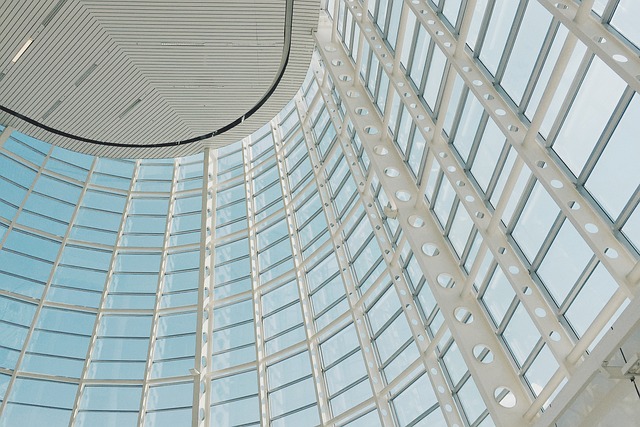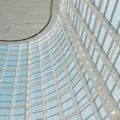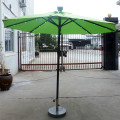Great question! Let’s explore the benefits and differences between hosting an event in a glass hall equipped with PDLC smart film (Polymer Dispersed Liquid Crystal) smart glass versus one with normal glass. We’ll consider both daytime and nighttime scenarios, especially on very hot days, Like in Dubai or Abu Dhabi.

Image by donterase from Pixabay
PDLC Smart Glass vs. Normal Glass:
PDLC smart glass, also known as switchable or privacy glass, can change from transparent to opaque with the application of an electric current. Normal glass, on the other hand, remains consistently transparent.
Benefits of PDLC Smart Glass for Events:
1. Temperature Control:
– Hot Day: PDLC glass can be switched to opaque, blocking out direct sunlight and reducing heat gain. This can significantly lower cooling costs and maintain a comfortable temperature.
– Night: While less crucial at night, the opaque setting can still provide insulation, helping to retain cool air if the AC is running.
2. Lighting Control:
– Hot Day: By controlling the amount of natural light entering the space, you can create the perfect ambiance without harsh glare or overexposure.
– Night: The glass can be switched to transparent, allowing for beautiful views of the night sky or city lights, enhancing the event atmosphere.
3. Privacy:
– Any Time: You can instantly create privacy by switching the glass to opaque, which is useful for VIP areas or during event setup and breakdown.
4. Projection Surface:
– Any Time: When opaque, the glass walls can serve as projection screens, allowing for immersive visual displays without additional equipment.
5. Energy Efficiency:
– Hot Day: By reducing solar heat gain, PDLC glass can significantly lower air conditioning costs.
– Night: The insulating properties can help maintain a consistent temperature, potentially reducing heating or cooling needs.
6. Flexibility:
– Any Time: You can quickly adapt the space to changing needs throughout the event, altering the atmosphere with the flip of a switch.
7. Wow Factor:
– Any Time: The ability to change the glass from transparent to opaque can be a impressive feature, adding a high-tech, luxury feel to your event.
Normal Glass in Comparison:
1. Temperature Control:
– Hot Day: Normal glass allows more heat to enter, potentially making the space uncomfortably warm and increasing cooling costs.
– Night: Less of an issue, but still provides less insulation than PDLC glass in its opaque state.
2. Lighting Control:
– Hot Day: You’ll need to rely on curtains, blinds, or tinting to control light and heat, which can obstruct views and be less flexible.
– Night: Offers unobstructed views but without the option for privacy or light control.
3. Privacy:
– Any Time: Additional measures like curtains or blinds are needed for privacy, which can be cumbersome and less elegant.
4. Projection Surface:
– Any Time: Additional screens would need to be installed for projections.
5. Energy Efficiency:
– Hot Day: Less energy efficient, potentially leading to higher cooling costs.
– Night: Standard insulation properties.
6. Flexibility:
– Any Time: The space remains static, with less ability to adapt to changing needs.
7. Aesthetic:
– Any Time: While potentially offering beautiful views, it lacks the high-tech appeal and adaptability of smart glass.
In conclusion, while a glass hall with normal glass can provide a beautiful setting for an event, PDLC smart glass offers superior flexibility, control, and efficiency, especially during very hot days. It allows you to dynamically manage light, temperature, privacy, and ambiance, creating an optimal environment for your event regardless of the time of day or external conditions. The initial cost of PDLC glass may be higher, but the benefits in terms of energy savings, versatility, and wow factor can make it a worthwhile investment for high-end event spaces.
References: Wikipedia




